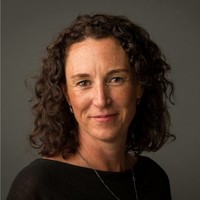
Charter School Financial Manager
Carolyn Hack is using her MBA in an unconventional way. As chief financial officer of Uncommon Schools, she is responsible for the financial management of urban charter schools.
Uncommon is a well-regarded education nonprofit that seeks to close the achievement gap and prepare urban students for college graduation. It manages sixteen schools in New York and New Jersey and has two associate member schools in Boston. Eventually, Uncommon plans to include 33 schools, serving nearly 12,000 K through 12th grade students.
Uncommon Schools are well-known for high teacher accountability, rigorous curriculum structure and thorough standards-based instruction. This type of charter school model is gaining wide acceptance in major urban areas including New York City.
Bringing in talented management is crucial to such charter schools' success. Carolyn exemplifies the approach. She holds a B.A. in Economics from Johns Hopkins University and an M.A. from Stanford University School of Education. Prior to business school, Carolyn taught high school math and coached basketball and soccer for five years in Northern California. She graduated in 2005 from Columbia Business School, where she was elected to the Beta Gamma Sigma Honor Society and was awarded the faculty-bestowed prize for Nonprofit and Public Management.
Carolyn says she became excited about charter schools while at Stanford, though more from a business standpoint. She eventually decided that an MBA would be a useful way to transition to a management role in education. She joined Uncommon as Director of Finance in 2006. Before this, she worked as the Associate Executive Director of Development and Administration at Anchor, Inc. While at Anchor, she was responsible for the financial management of the organization, strategic planning, the development of a new evaluation model, the oversight of a capital renovation project, and fundraising, according to her Uncommon Schools online profile.
While her Columbia Business School finance classes do help her in her daily job, Carolyn says it is more a framework to make decisions. "I can't emphasize enough that as you take on leadership (or "C-level" jobs), the soft skills are what make you successful," she says. "I spend a significant amount of my time on the organization's 'people issues'" and "would recommend management and negotiation classes above everything else."
She advises current MBA students to think broadly about their potential career opportunities because school is "the easiest time to transition to a new path. If you don't do it now, you probably won't anytime soon" she says. She also encourages others to not "stress the 5 year plan. Things change. Just take a job you think you'll love with people you think are smart and fun at a place you think you will learn a ton."
By Diya Gullapalli '11, for Columbia Women in Business (CWIB) alumni news.